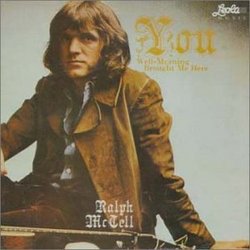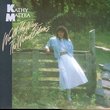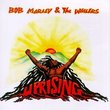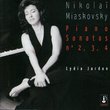| All Artists: Ralph Mctell Title: You Well Meaning Brought Me Here Members Wishing: 3 Total Copies: 0 Label: Leola Records Original Release Date: 1/1/2007 Re-Release Date: 3/26/2007 Album Type: Import Genres: Folk, International Music, Pop, Rock Styles: Traditional Folk, British & Celtic Folk, Contemporary Folk, Europe, Britain & Ireland, Singer-Songwriters, Folk Rock Number of Discs: 1 SwapaCD Credits: 1 UPCs: 5016272781429, 182478413725 |
Search - Ralph Mctell :: You Well Meaning Brought Me Here
 | Ralph Mctell You Well Meaning Brought Me Here Genres: Folk, International Music, Pop, Rock
2007 reissue of Ralph McTell's splendid fourth album, originally released on the Famous Records label in 1971. The album was produced by Gus Dudgeon (Elton John, David Bowie, John Armatrading) in London. Among the musician... more » |
Larger Image |
CD DetailsSynopsis
Album Description 2007 reissue of Ralph McTell's splendid fourth album, originally released on the Famous Records label in 1971. The album was produced by Gus Dudgeon (Elton John, David Bowie, John Armatrading) in London. Among the musicians supporting Ralph on the recording were Davy Johnson, Caleb Quaye and Roger Pope from the contemporary Elton John Band, keyboard whiz Rick Wakeman (from the Strawbs) and some fabulous string arrangements from Robert Kirby (Nick Drake). Leola. Similar CDs
|
CD ReviewsA different sound from Mr. McTell 06/13/2000 (4 out of 5 stars) ""Well-Meaning" was my introduction to Ralph McTell nearly 30 years ago. I later learned, after buying other RM albums, that it was a departure for him with regard to production. His songs usually employ spare instrumentation and backing vocals (often his own). The songs on "Well-Meaning" get the full Gus Dudgeon treatment, which means there is a decidedly different feel to Ralph's songs this time around. Enlisting a few of Elton John's bandmates -- the superb Caleb Quaye on guitar and the always solid Roger Pope on drums, for example -- Dudgeon did a beautiful job of framing Ralph's vocals, not burying them (and hence, the words) in the mix. The orchestrations and backing vocals are always tasteful (particularly on "Genesis I Verse 20" and "The Ferryman"). Rick Wakeman also guests on keyboards. The topics on this album, as one might expect from Ralph McTell, are wide ranging. The above two songs are based on a Bible passage and Hesse's "Siddhartha," respectively, and other songs here deal with racism, soldiering and friendship. Depending on your state of mind or emotional outlook when you listen to these songs, some of them can be extremely tough to take; "Old Brown Dog" is a tear-jerker in the same league with the Byrds' "Bugler," so if you've recently lost a dog, you might want to skip this one till you're over your grieving. Or, you may decide to listen to it and find it cathartic. (Caleb Quaye's guitar and Davey Johnstone's mandolin are positively spiritually uplifting.) One final but major, major point about this CD, and the reason I gave it four stars instead of five: For some inexplicable reason, it does not include "Streets of London," which appeared on my vinyl LP version of the album nearly 30 years ago. Perhaps there were two different versions of "Well-Meaning" -- a British release and a U.S. release. In any case, a song titled "Chalkdust" appears on this CD where "Streets of London" originally appeared on the record. It's an okay song, but it's no "Streets of London." Fortunately, "Streets" can be found on other CDs, albeit in different versions. (By far, the best one is on the CD titled "From Clare to Here: The Songs of Ralph McTell.") So, despite the puzzling omission of Ralph's best-known song from "Well-Meaning," this CD is a welcome addition to your appreciation of Ralph McTell's canon." The best album from folk singer-songwriter Roger McTell Lawrance M. Bernabo | The Zenith City, Duluth, Minnesota | 01/11/2004 (5 out of 5 stars) "Ralph McTell is one of the most influential singer-songwriters of his generation of British folk music. Although this 1971 album does not have his most recognizable song, "Streets of London," all things considered "You Well-Meaning Brought Me Here" is probably his finest album. One of the things that speaks to his talent is that McTell produced several albums almost as good during the 1970s, all of which speak to his commitment to the craft of writing folk songs. The resulting body of work is extremely solid, if not spectacular, and well worth exploring for those who love this genre.This album starts strongly, with "Genesis I Verse 20," "First and Last Man," and "In Some Way I Loved You." "Lay Your Money Down" is clearly a drinking song, otherwise the attempts to rhyme words with "Mable" is too much to bear sober. With "Old Brown Dog" and the anti-war song "Pick Up a Gun," McTell shows his command of the complete range of folk music topics. At the heart of it all is McTell's voice, which adds the required depth where necessary. McTell plays guitar, piano, flute, guitar, harmonica, harmonium, and Moog synthesizer on this album, while Rick Wakeman shows up on organ and piano as a sessions musician. "You Well Meaning Brought Me Here" was produced by Gus Dudgeon, who was about to begin a lengthy and successful run of albums with Elton John. The similarity in the production values is clear, with the additional instrumentation and string arrangements used to emphasize McTell's gentle vocals and excellent acoustic guitar playing. Here we have the sort of artist where you will enjoy listening to him sing any song he wants to play. Having finally heard this album, I want to track down some more of his work." Overrated C. H Smith | Bowling Green, Kentucky United States | 10/05/2000 (3 out of 5 stars) "Between about 1967 and 1977 Ralph McTell put out around ten albums (all of which I own), and I've always felt this to be one of his poorest. I make this observation because I have seen many others point to "You Well-Meaning" as his best, an assessment I could never understand. It *is* probably his best from the strict point of view of the artist as poet-philosopher, but I never much cared for the musical arrangements (despite the many fine sidemen) or the strained melodies attached to his lyrics (and even some of these get to be a bit tedious). Note that the other reviewer is wrong--only his first two or three albums have sparse arrangements; the rest from this period (1971 on) feature small ensemble playing as this one does. I would recommend "Not Till Tomorrow" over this one any day--an absolutely glorious example of songwriting craftsmanship from start to finish."
|

 Track Listings (11) - Disc #1
Track Listings (11) - Disc #1



